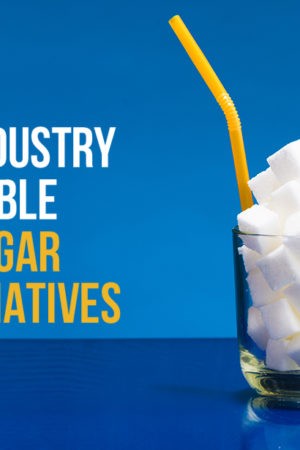There are some undeniable differences between the generations. Older generations may prefer the feeling of flipping pages of a book, while younger consumers love the storage space of their Kindle or other e-readers. Millennials largely consider natural produce and low-carbohydrate diets to be healthier, while Baby Boomers will probably tell you that a low-fat approach is the way to go. However, there's one area where research suggests that the generations are coming together–a demand for less sugar. New research presented at the International Sweetener Colloquium in Orlando last February communicated that, regardless of age, consumers are beginning to avoid added sugars in the products they buy while opting for artificial, low-calorie options.
Generational trends in sugar
While the avoidance of sugar seems to be a universal trend, there is a generational divide when it comes to deciding which replacement sweetener is best. Younger consumers (many of whom make up the millennial generation and Generation X) have been found to prefer sweeteners like Stevia and sugar alcohols, while older generations have a tendency to prefer aspartame and sucralose. Researchers theorized that this divide may be due to older generation's higher likelihood of being on a low-sugar diet.
A worrying situation for the sugar lobby
Sugar has a long history of misinforming the public, but unfortunately for the sugar industry, consumers are starting to become more educated about the dangers of excess consumption. Statistics presented at the International Sweetener Colloquium in Orlando should be worrying for those involved with the sugar industry. An estimated “58 percent of consumers across generations are avoiding sugar,” with “50 percent avoiding adding sugar to their food and beverages and 30 percent avoiding consuming products with sugar in the ingredient list.”1 Consumers also have a number of reasons for avoiding added sugar, with 85 percent doing so to improve their health and 58 percent avoiding sugar in an effort to better control their weight.
What's next for the sweet stuff?
No matter how you feel about sugar and added sugar in foods and beverages, one thing can be said for certain: the market is making a move towards rewarding manufacturers who offer lower sugar alternatives to their current lineup of products. In response to this trend, the number of advertisements claiming that products were “naturally sweetened” increased. This is likely an attempt to appeal to the millennial consumer group, who overwhelmingly see organic and natural products as healthier than non-natural alternatives.
This recent summit is far from the first data that suggests that the sugar industry should be concerned about their future. One of the long-time profit-producing companies in the United States, Coca-Cola is currently fighting low profits with diet and zero calorie innovations, according to current reports.2 These findings suggest that, in order to keep up with a public of consumers who are becoming more and more educated about the effect that sugar has on their health.
NUTRITIONAL DISCLAIMER
The content on this website should not be taken as medical advice and you should ALWAYS consult with your doctor before starting any diet or exercise program. We provide nutritional data for our recipes as a courtesy to our readers. We use Total Keto Diet app software to calculate the nutrition and we remove fiber and sugar alcohols, like erythritol, from the total carbohydrate count to get to the net carb count, as they do not affect your blood glucose levels. You should independently calculate nutritional information on your own and not rely on our data. The website or content herein is not intended to cure, prevent, diagnose or treat any disease. This website shall not be liable for adverse reactions or any other outcome resulting from the use of recipes or recommendations on the Website or actions you take as a result. Any action you take is strictly at your own risk.
- Keto Drives Increased Calorie Burn - July 11, 2019
- New High-Protein, Low-Sugar Greek Yogurt Hits Market - April 1, 2019
- Can Going Low-Carb Fight Back Fat? - December 4, 2018































